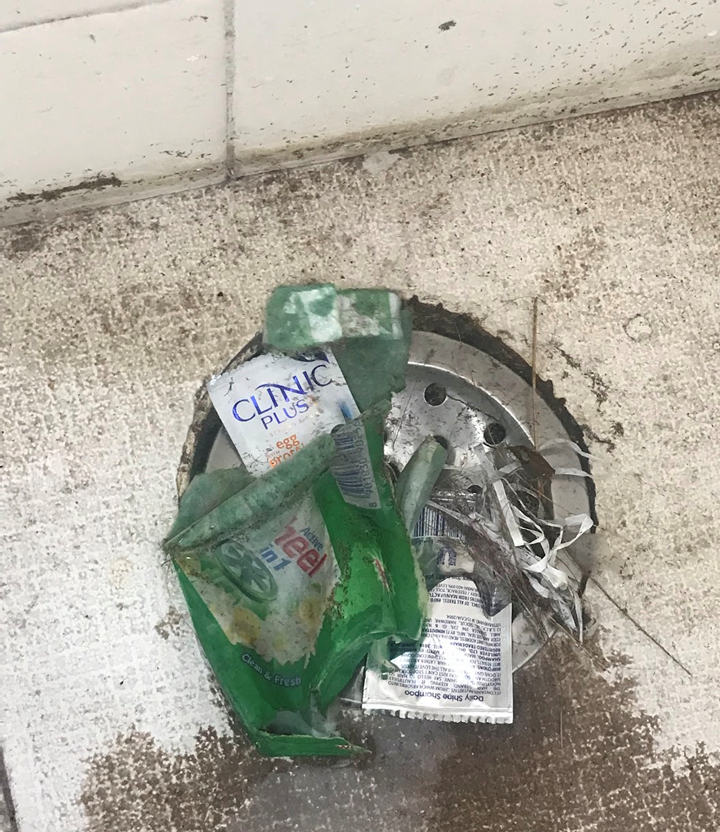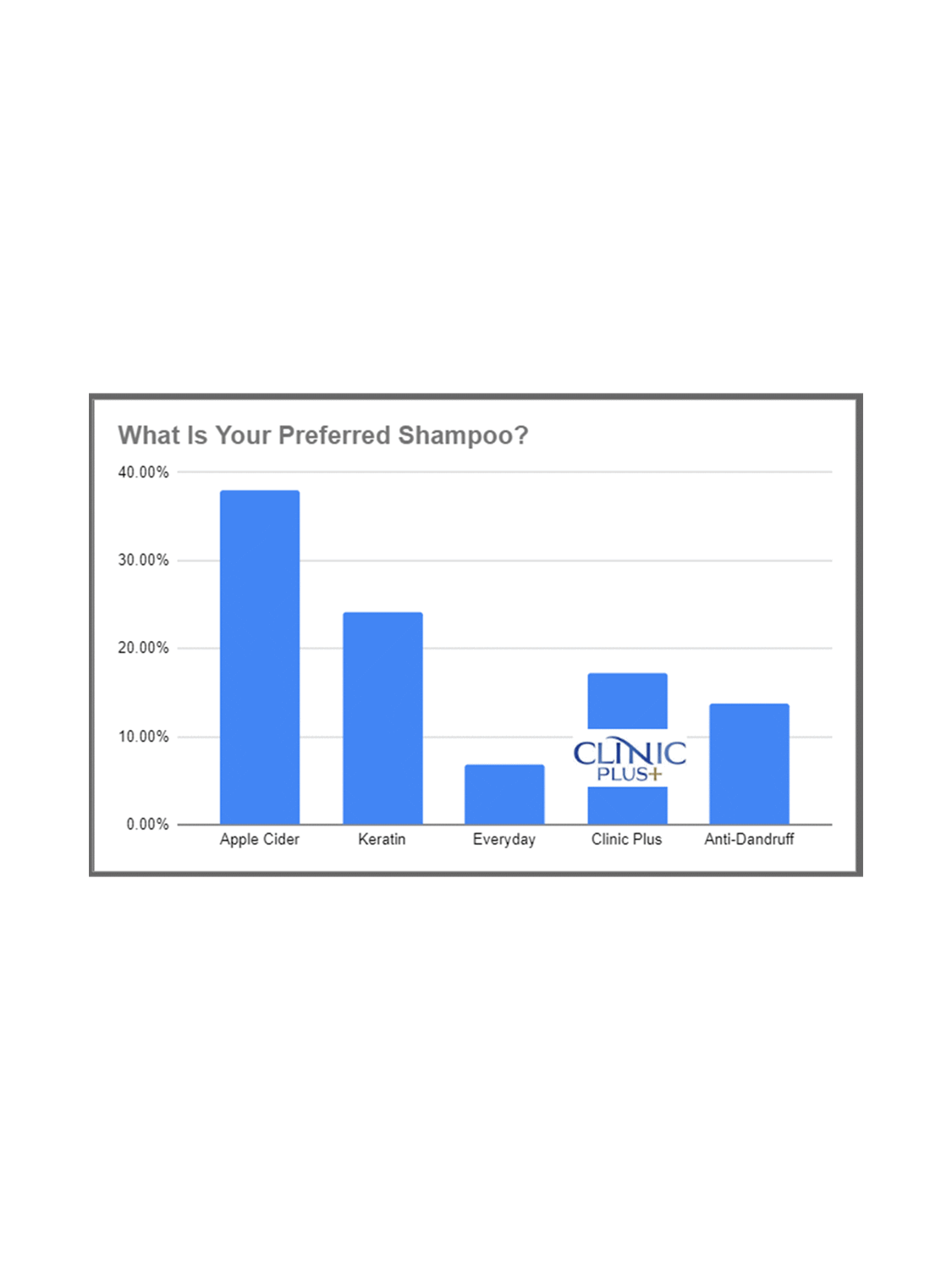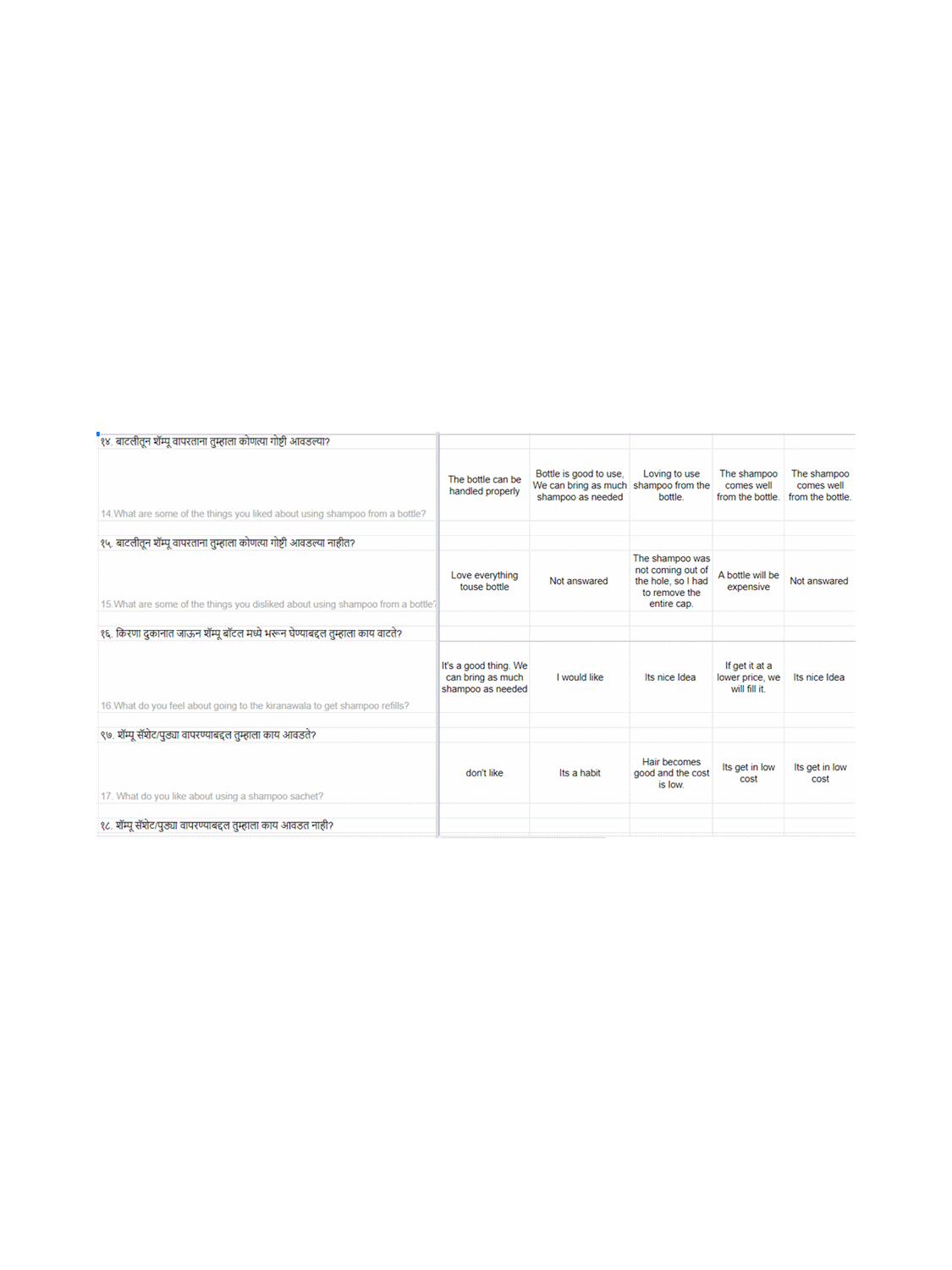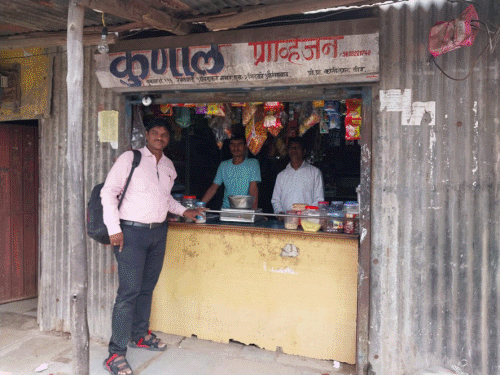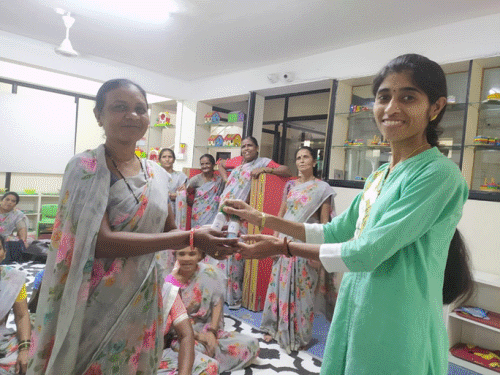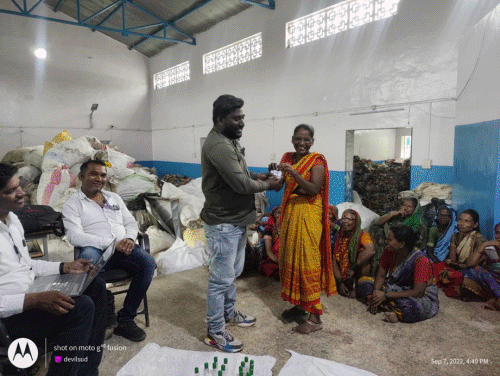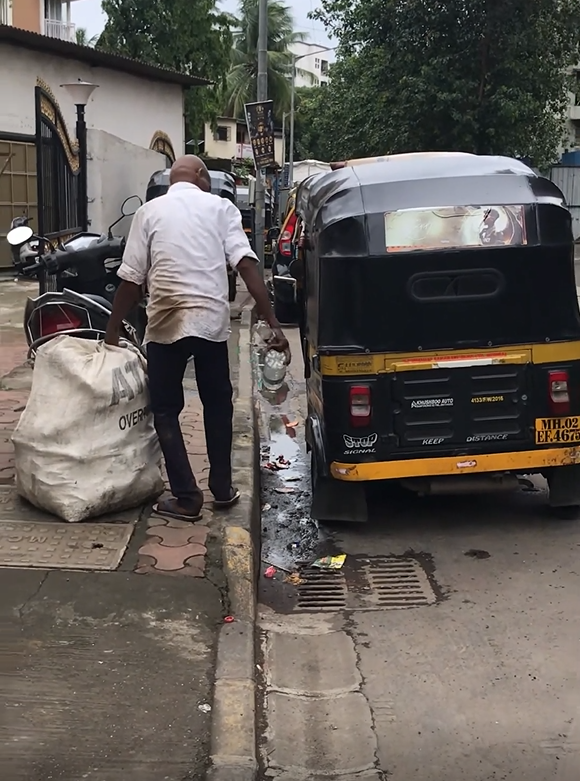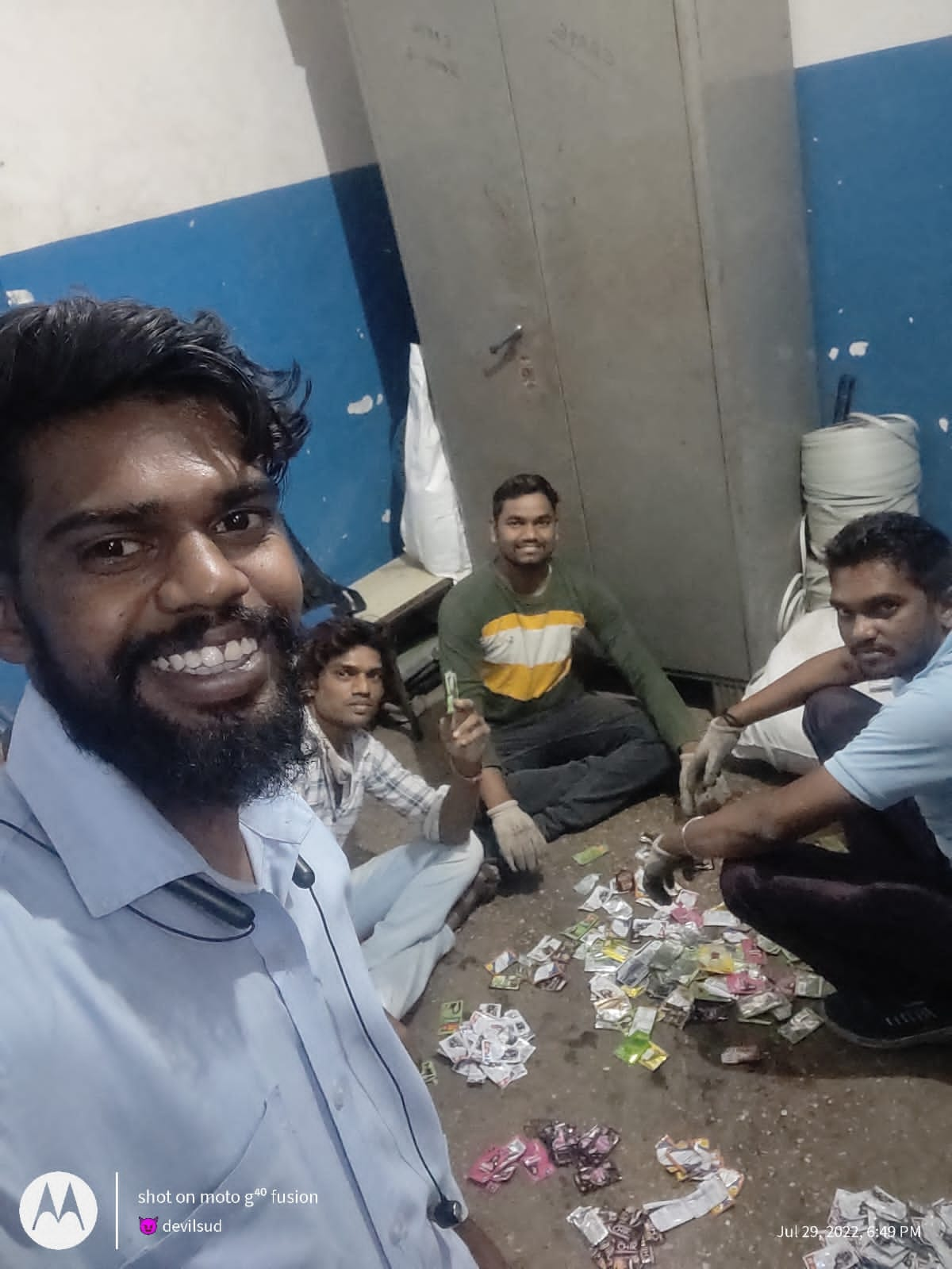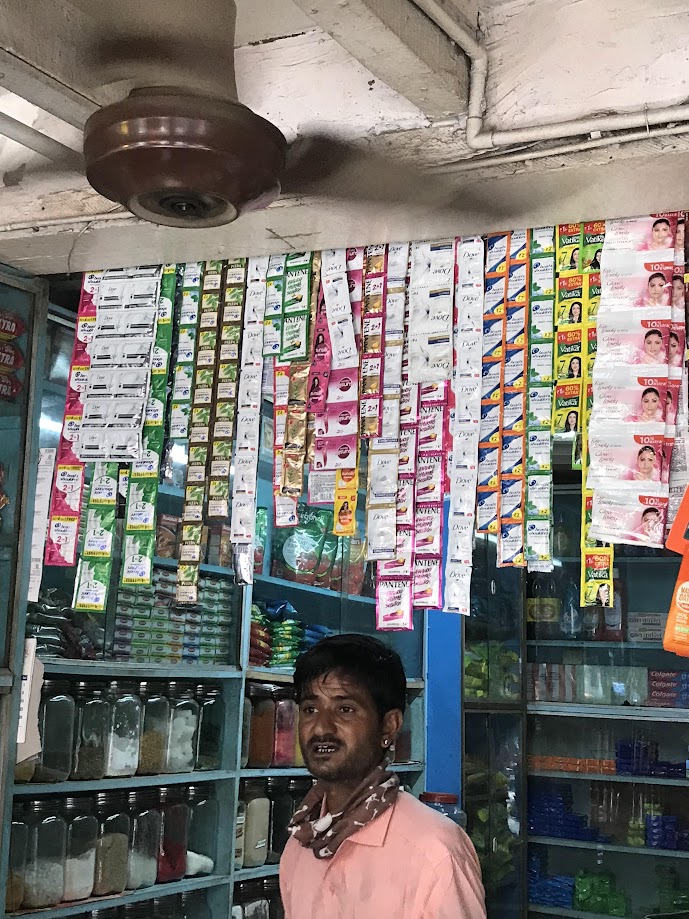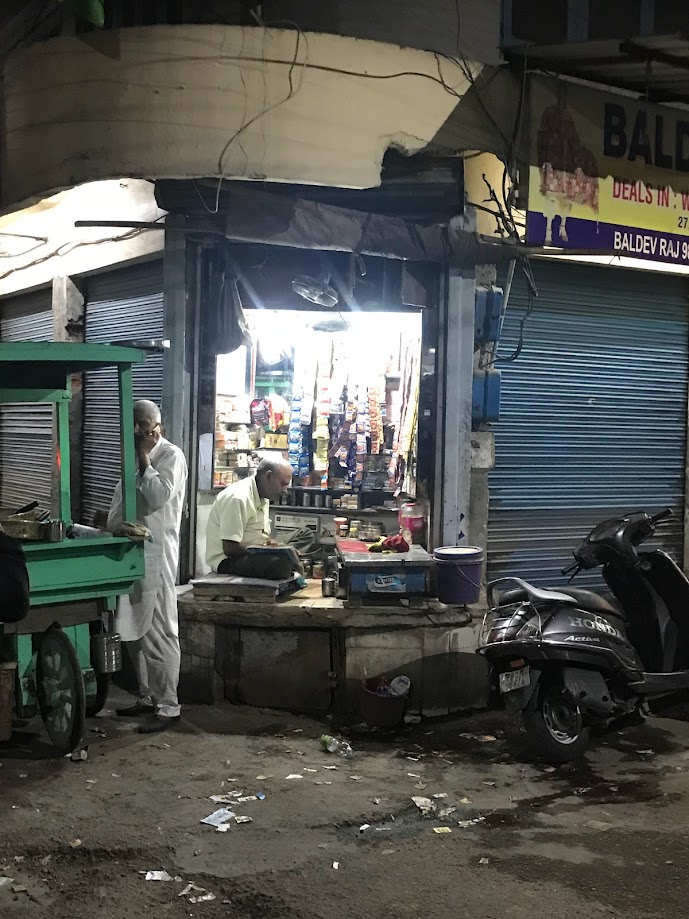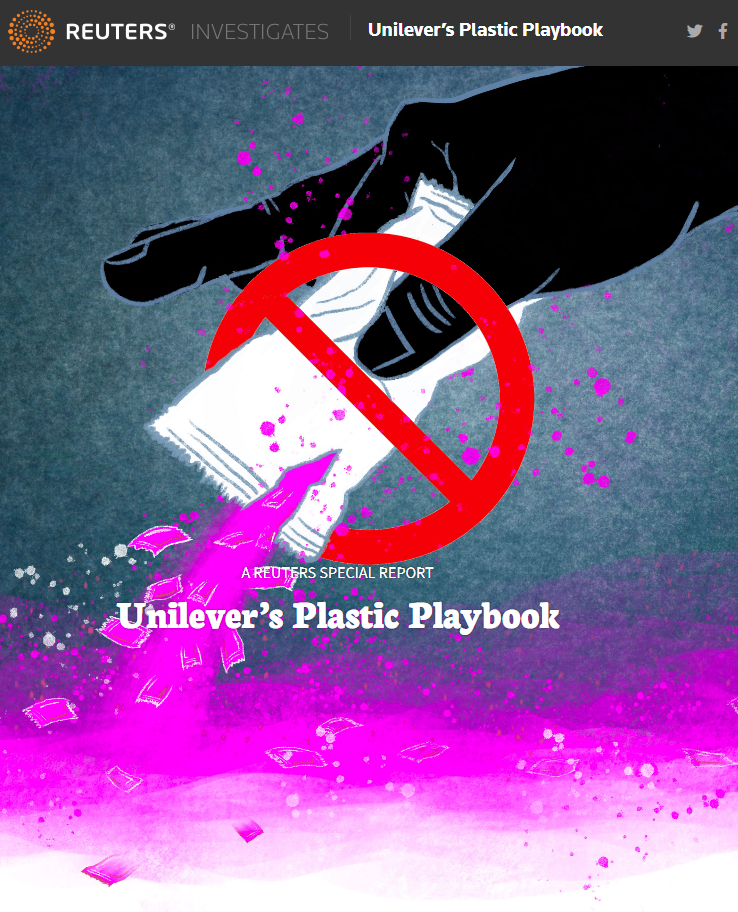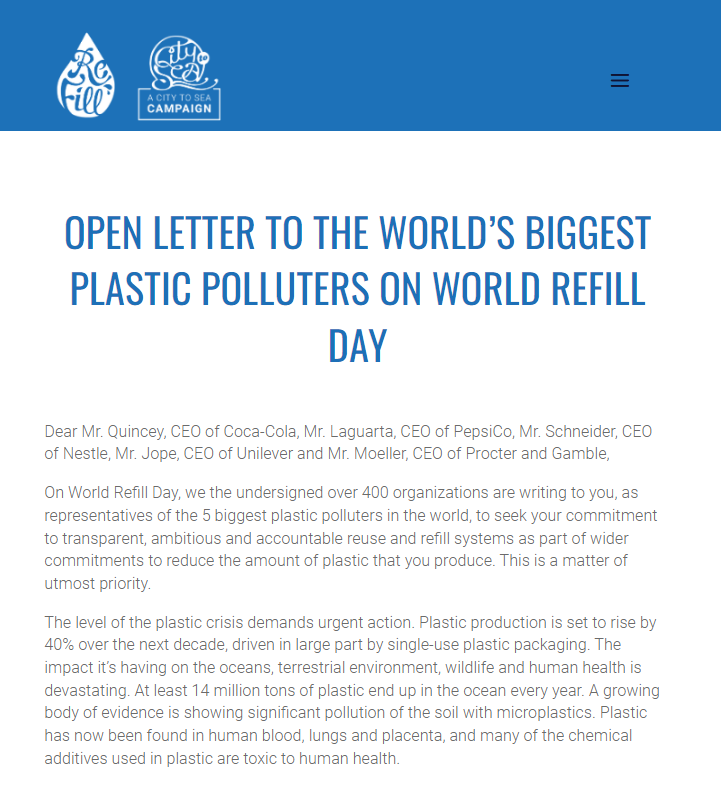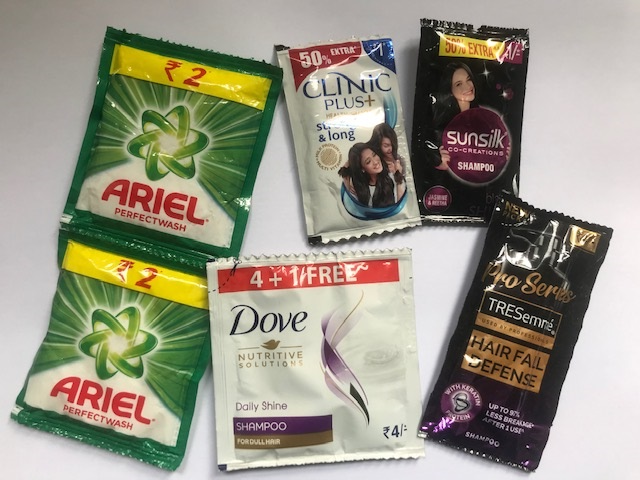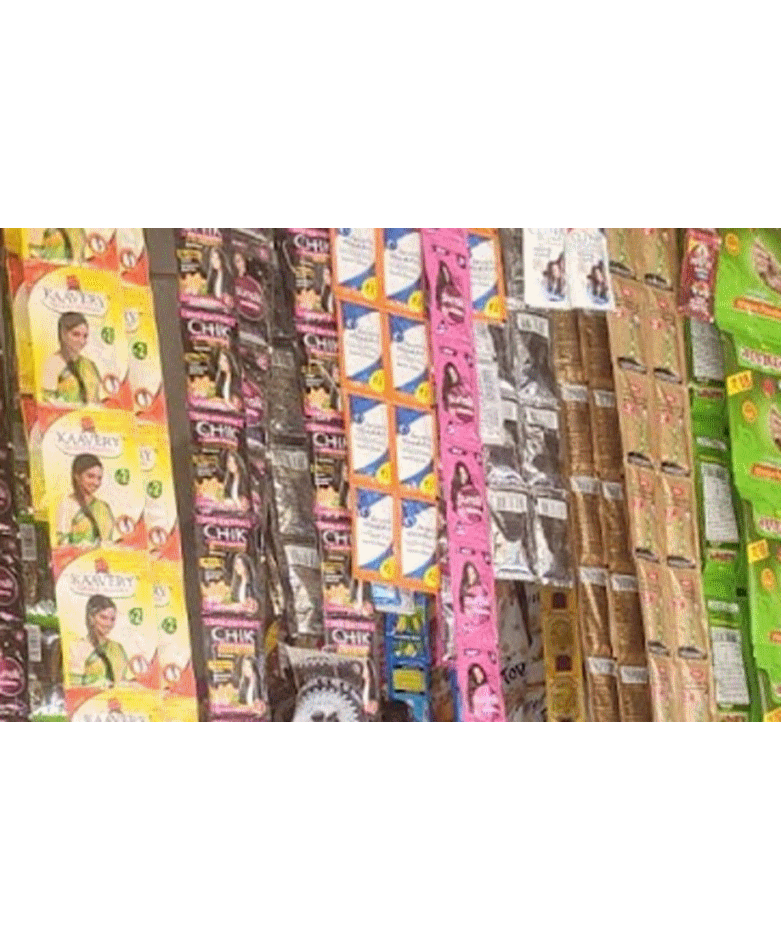Clogged Drains, Another Impact Of Sachets
We were well aware of the polluting effects of plastic sachets but through our consumer research we found another consequence, they clog drains. Not just in the home, where they can cause showers to block up but more broadly in the neighbourhood where they can cause drains to overflow and roads to flood. In monsoon season the problem can be particularly acute.
This Times of India article talks about how plastics generally causes city drains to clog, but pays no attention to the clogging effect of sachets in peoples’ homes.more...
माझा शॅम्पू Or आमचा शैम्पू?
We worked with a design and branding company in India to explore branding and naming strategies. It was a useful exercise
Nothing is yet settled, but we’re leaning towards a name that reflects the collaborative and communitarian approach we’ve taken.more...
Consumer Testing Our Products - Better Than The Market Leader!
Our project is about demonstrating an alternative to the plastic sachet so that shampoo and other products can be sold without generating enormous amounts of plastic waste. We had hoped to work with some big brands, or any brand come to that, already selling shampoo in sachets, but we couldn't get any takers. The most encouraging response we got amounted to ‘Come back to us when you've proved that it works’!
So we had to create our own shampoo brand. An essential element of this is, of course, the shampoo itself.more...
Premium Hand Care With The Silvertown Brand, All In Glass With Stainless-Steel Pumps
Silvertown, a premium brand made in the UK from high quality ingredients and presented in UK-made elegant glass bottles with a stylish stainless-steel push pump, is now available on RefillwithLESS.
The Silvertown brand offers gorgeous fragrances selected by professional perfumers. Hand soap comes in White Rose & Rhubarb and Tuscan Orange & Bergamot, and there is a Fresh Apple Hand Sanitiser too.more...
What Do Consumers Really Think About Sachets?
Billions of sachets are used every day, but it turns out consumers really don't like them. We conducted a range of surveys with different groups of low-income women consumers in India, the primary buyers of shampoo in sachets but a group rarely, if ever, listened to.
Through a series of group sessions and one-on-one interviews, we explored many aspects of their interaction with sachets – why they use them, where they buy them, what they think of them, what they dislike most about them, and so on.more...
The Results Are In: No One Prefers Sachets!
In recent weeks we've been conducting a range of tests to find out what consumers think about sachets and how using them compares to using the small plastic bottles we plan to use as part of our refill solution.
It's not even close. We were anticipating some reluctance in moving from familiar habits, but it seems using a bottle is simply a way superior experience. And for many consumers it’s a novel one too, since purchasing a shampoo in bottles is too expensive - for many people in the survey it was the first time they'd used shampoo this way.more...
Field Testing Our Refill Solution With Storeowners
A critical element in our refill solution is the (ideally enthusiastic) participation of kirana store owners. By some estimates there are about 15 million of these stores across India, most run by an individual or family.
Very roughly, there’s a kirana store for every 100-300 people, so it's rare to go far without seeing one.
The stores are remarkably space efficient, making sure to use every square inch to display or store product. Even in a very limited area you'll find a wide range of products across numerous categories.more...
More Shampoo Consumer Testing
Another day, another set of product testers!
This time, it's a group of women who work looking after young children during the day….more...
Consumer Testing Our Shampoos
As part of our effort to create our own shampoo brand, we undertook a range of testing with consumers in our target market.
In addition to interviews to learn how often they use shampoo, what they think about sachets, what factors weigh on their decisions etc., we also handed out a range of samples for them to test at home in bottles.
Here are some photos of testers at a municipal waste recycling facility receiving their samples…more...
"No One Bends Down To Pick Up Sachets"
India's plastic waste collection industry is remarkable, but it doesn't extend to sachets.
I saw this in action when I watched a waste picker in Mumbai. He diligently picked up plastic bottles, as well as plastic bottle tops but not the plastic sachets sitting right there. This is because sachets have no value – he can sell hard plastic to local aggregators for a small sum, but not sachets.
I discussed this with a manager of a plastic waste processing facility who stated the obvious, “No one bends down to pick up sachets”.more...
Brand Audit: Unilever The Standout Sachet Winner!
One way to see who leads the shampoo sachet market, and causes the most pollution, is to sift through plastic waste and see which brands are most common.
We worked with our NGO partner in India, CARPE, to do this for one entire ward in Aurangabad, Ward 7, which is predominantly a low-income demographic with about 12,000 peoplemore...
Understanding Kirana Stores. Beating A 20% Margin
We need to learn about kirana stores, those small shops that still make up the majority of India's nearly $1 trillion retail economy.
Little is published about them. Here’s a few snippets from CBI Insights:
We wanted different insights. Could we work with them on a refill solution? Would they be up for it? If so, what margin would they need to make? What space could be available? What would make their business run better or be more profitable?more...
Iterating Toward A Solution
Well over 70% of shampoo in India is sold in sachets, and by far the majority is sold through a vast network of independent general stores.
These stores range from someone sitting on a chair selling maybe 10 different products, to large stores with a wide range. Here’s a couple I saw recently…
You get them everywhere.more...
Unilever’s Duplicity Revealed By Reuters Report
A hard-hitting Reuters 22 June 2022 report lays bare Unilever’s hypocrisy about sachets.
Reuters points out that while Unilever has been a vocal critic of sachet packaging it has been lobbying to prevent it being banned.
For several years Unilever executives criticised sachet packaging, saying it is “evil because you cannot recycle it” (Hanneke Faber, Unilever’s President for Global Food & Refreshments in 2019), and “We have to get rid of them… It's pretty much impossible to mechanically recycle and so it's got no real value” (CEO Alan Jope in 2020).more...
Going Round In Circles…. What Sort Of Reuse System Could Work In India? Unknowns, Constraints And Lots Of Questions…
Devising a viable reuse system that would work well in India is hard.
Our first reuse service in the UK is a twist on the traditional milk round – we deliver personal care and household care products in ready to use containers, supplying replenished bottles when needed and collecting empties to reprocess.
This works well in the UK and consumers like it. They get a range of products without plastic waste, conveniently delivered, and everything gets reprocessed for them.more...
Open Letter To Plastic Polluters Calls For Reuse Systems
On World Refill Day, City to Sea and its Refill campaign sent an open letter to CEOs of the world’s five biggest plastic polluters, including two that work in our space, Mr. Jope, CEO of Unilever and Mr. Moeller, CEO of Procter and Gamble.
Signed by over 400 organizations, the letter asked for the CEOs’ commitment to “transparent, ambitious and accountable reuse and refill systems as part of wider commitments to reduce the amount of plastic that you produce.”more...
People Want To Help Stop Plastic Waste
I talk about plastic waste (too much my friends would say!) and notice that people are universally fed up with it, and frankly pissed off that they can't buy the products they want without single use plastic.
People are motivated to help us and it's very heartening.
Our insurance broker removed his commission because he likes what we're trying to do, our graphic designers and IT consultants work at reduced rates because they believe in our goals. It's all very humbling and encouraging.more...
Beating The Sachet!
Problems sachets cause in lower-income countries have been recognised for years, but finding a solution isn’t easy.
Consumers there have for decades been educated to use disposable sachets and now have an ingrained buy and dispose culture.
Traditional refill-reuse habits have faded and there are now precious few circular systems to build on.
Consumers also now have their preferred brands and sachets are the only affordable way to buy them.more...
Companies Like Unilever Still Focused on Growing Sachet Market
We did a little research into how dependant consumer goods companies like Unilever and Procter & Gamble are on sachets.
We learnt…
SACHETS HAVE BEEN THE PREFERRED FORM OF PACKAGING FOR OVER A DECADE
Euromonitor (2013):more...
The Money In Sachets
Why do companies sell products in sachets?
That's easy. There's good money in it. Only by selling such small amount of product can lower income consumers afford to buy, and sachets are the easiest way to do this.
In low-income countries, the ‘bottom of the pyramid’ is a vast and lucrative market.more...
